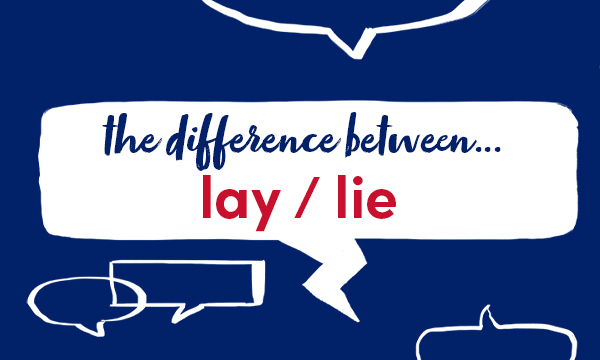This week we are looking at two words which are sometimes confused by learners of English: lay and lie.
lay

Lay is a transitive verb, and it is also a past tense of another verb, ‘lie’.
To lay something somewhere means to put it there carefully or neatly.
Lay a few sheets of newspaper on the floor before you start painting.
The other forms of lay are lays, laying, laid.
Michael laid the box on the table gently.
`I couldn’t get a taxi,’ she said, laying her hand on Nick’s sleeve.
lie

Lie is an intransitive verb with two different meanings.
To lie somewhere means to be there in a horizontal position, or to get into that position. You can also use lie down to talk about getting into a horizontal position.
She would lie on the floor, listening to music.
Why don’t you lie down on the sofa for a bit?
When lie is used like this, its other forms are lies, lying, lay, and lain. The past participle lain is rarely used.
The baby was lying in her cot.
I lay in bed listening to the rain.
To lie also means to say or write something which you know is untrue.
Why did he lie to me?
When lie is used like this, its other forms are lies, lying, lied.
Robert was sure that Thomas was lying.He had lied about where he had been that night.
Find out more in our English Usage article.
This blogpost is based on Collins COBUILD English Usage, written for learners of English. For more examples of English usage points, please visit: https://grammar.collinsdictionary.com/english-usage.
All opinions expressed on this blog are those of the individual writers, and do not necessarily reflect the opinions or policies of Collins, or its parent company, HarperCollins.



